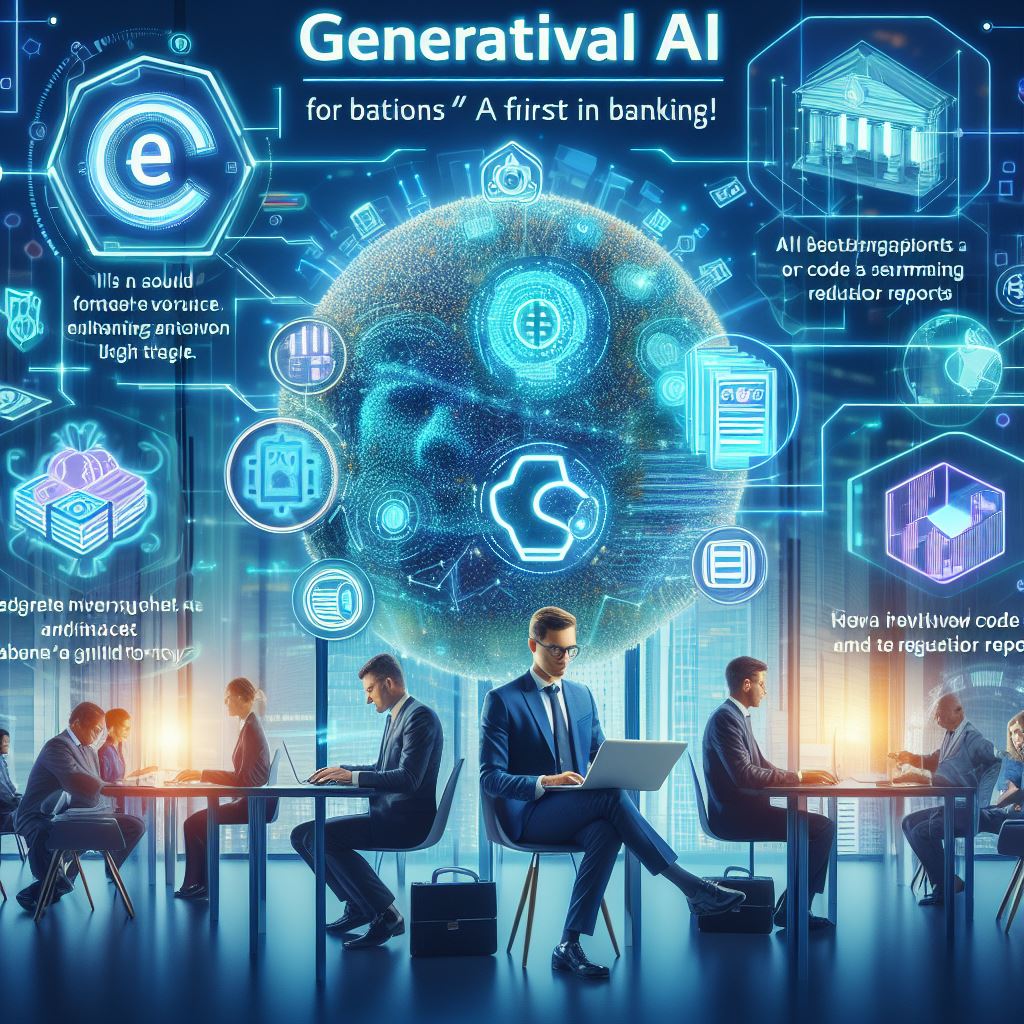The banking sector is undergoing a significant transformation, driven by the rapid advancements in Artificial Intelligence (AI in Banking: The Digital Transformation of Financial Services). As financial institutions grapple with the challenges of the digital age, AI emerges as a beacon of innovation, promising to redefine the industry with smarter, more efficient, and customer-centric services.
AI is not a new concept in banking, but its applications have exponentially grown in recent years. Banks are leveraging AI to enhance customer experiences, streamline operations, and create new business models. From chatbots that provide instant customer service to algorithms that detect fraudulent activities, AI’s impact on banking is profound and far-reaching.
One of the most visible applications of AI in banking(AI in Banking: The Digital Transformation of Financial Services) is in the realm of customer service. AI-powered chatbots and virtual assistants are now capable of handling a wide range of customer queries, providing quick and accurate responses. This not only improves customer satisfaction but also allows human employees to focus on more complex tasks.
AI is also revolutionizing back-office operations in banks. By automating routine tasks such as data entry and analysis, AI is reducing operational costs and increasing efficiency. Machine learning algorithms can process vast amounts of data to identify patterns and insights, aiding in decision-making and risk management.
Security is paramount in banking, and AI is playing a crucial role in enhancing it. AI systems can monitor transactions in real-time to detect anomalies that may indicate fraudulent activity. They can also predict and prevent cyber-attacks, ensuring the safety of customers’ funds and personal information.
AI enables banks to offer personalized services to customers by analyzing their behavior and preferences. This allows for tailored financial advice, product recommendations, and even dynamic pricing of services. Personalization not only attracts customers but also fosters loyalty and trust.
Despite its benefits, the integration of AI in banking is not without challenges. Issues such as data privacy, ethical concerns, and the need for regulatory compliance must be addressed. Banks must also ensure that their AI systems are transparent and free from biases that could lead to unfair treatment of customers.
Looking ahead, AI is set to become an integral part of the banking ecosystem. With the advent of AI-driven predictive analytics, banks will be able to anticipate customer needs and offer proactive solutions. The potential for AI to drive growth and innovation in banking is immense, and we are only scratching the surface of what is possible.
Generative AI in Banking: Generative AI is revolutionizing the banking industry by enhancing customer-facing chatbots, preventing fraud, and speeding up tasks like code development and summarizing regulatory reports. It could add between $200 billion and $340 billion in value annually to the global banking sector.
AI-First Banks: To thrive in the digital age, banks must become “AI-first” institutions, adopting AI technologies as the foundation for new value propositions and distinctive customer experiences. This shift could potentially unlock up to $1 trillion of additional value each year.
AI for Risk Management: AI and machine learning are crucial for detecting fraudulent behavior quickly and alerting both banks and customers, thereby enhancing the security of online financial transactions.
Innovation and Differentiation: AI technology enables banks to drive innovation further and faster than ever before, helping to improve efficiency, manage risk and regulatory needs, and positively influence customer experience.
The AI Bank of the Future: Advancements in AI within financial services offer banks the potential to engage and serve customers in radically new ways, using a business model referred to as “the AI bank of the future”
AI in banking represents a paradigm shift towards a more agile, efficient, and customer-focused industry. As banks continue to adopt AI, they will be able to offer more sophisticated services, operate with greater efficiency, and provide enhanced security. The future of banking is undoubtedly intertwined with the continued evolution of AI, and it is an exciting time for both banks and their customers.


Hi i think that i saw you visited my web site thus i came to Return the favore I am attempting to find things to improve my web siteI suppose its ok to use some of your ideas
Hello my loved one! I wish to say that this article is awesome, nice written and come with approximately all significant infos. I?¦d like to look more posts like this .